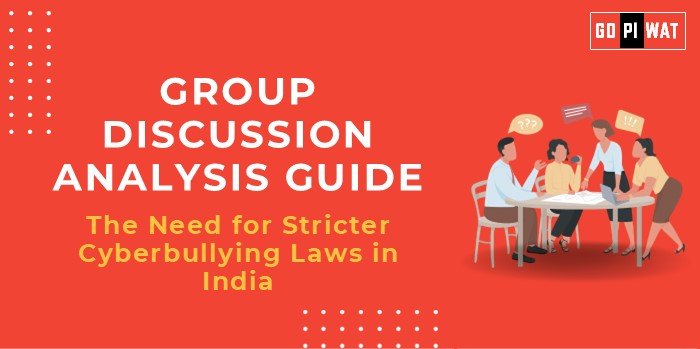📡 The Need for Stricter Cyberbullying Laws in India
🌐 Introduction to Cyberbullying Laws
“With the rapid growth of digital communication, cyberbullying has become a pervasive issue globally, affecting mental health, privacy, and safety, particularly among youth and vulnerable populations.”
Cyberbullying involves using digital platforms to harass, intimidate, or harm individuals. While laws like the IT Act (2000) and IPC provisions address online harassment, India lacks specific legislation targeting cyberbullying comprehensively.
📊 Quick Facts and Key Statistics
- 👥 Internet Users: Over 900 million in India (2024).
- 📱 Youth Impact: 37% of youth reported online harassment in 2023.
- ⚖️ Conviction Rate: Below 10% for cybercrimes.
- 🌍 Global Rank: India is ranked 10th on the Global Cybersecurity Index (2022).
🧑🤝🧑 Stakeholders and Their Roles
- 🛡️ Government: Drafting laws, enforcing regulations, and running awareness campaigns.
- 💻 Technology Platforms: Monitoring abuse and ensuring stricter compliance with moderation policies.
- 🎓 Educational Institutions: Educating students about responsible digital behavior and offering support systems.
- 🤝 NGOs: Supporting victims and lobbying for stronger legal frameworks.
- 🏠 Parents and Society: Guiding youth and fostering an environment of accountability.
🏆 Achievements and Challenges
✅ Achievements:
- Amendments to the IT Act enhance intermediary accountability.
- State-level cyber cells address online harassment effectively.
- Awareness campaigns like “Cyber Safe India” promote digital safety.
⚠️ Challenges:
- No specific law for cyberbullying, creating legal ambiguity.
- Low reporting rates due to stigma and lack of awareness.
- Inadequate response mechanisms from tech platforms.
🌍 Global Comparisons
- 🇺🇸 United States: Dedicated anti-bullying laws in several states.
- 🇰🇷 South Korea: Strict penalties for online harassment have reduced incidents.
Case Study: The tragic suicide of a 15-year-old in Tamil Nadu (2021) due to relentless online trolling underscores the dire need for stricter laws.
⚖️ Structured Arguments
- ✅ Supporting Stance: Cyberbullying causes long-lasting psychological damage and requires specific legislation to ensure accountability.
- ❌ Opposing Stance: Over-regulation might stifle freedom of speech and impose excessive burdens on tech platforms.
- ⚖️ Balanced Perspective: While freedom of speech is vital, safeguarding individuals from harm through balanced regulations is equally important.
💡 Recommendations for Sustainable Progress
- 📜 Clear Legal Framework: Introduce specific laws addressing cyberbullying with defined penalties and remedies.
- 🤝 Tech Collaboration: Partner with tech platforms to enhance abuse monitoring and response mechanisms.
- 📢 Digital Literacy: National campaigns to educate users on cyber safety and reporting procedures.
🎓 Connecting with B-School Applications
- 📚 Real-World Applications: Relevant for projects on digital ethics, legal reforms, and corporate responsibility.
- ❓ Sample Interview Questions:
- “How can stricter cyberbullying laws balance freedom of speech with victim protection?”
- “What role can businesses play in combating online abuse?”
- 💡 Insights: Understanding regulatory challenges in technology fosters ethical leadership and responsible decision-making in business contexts.


